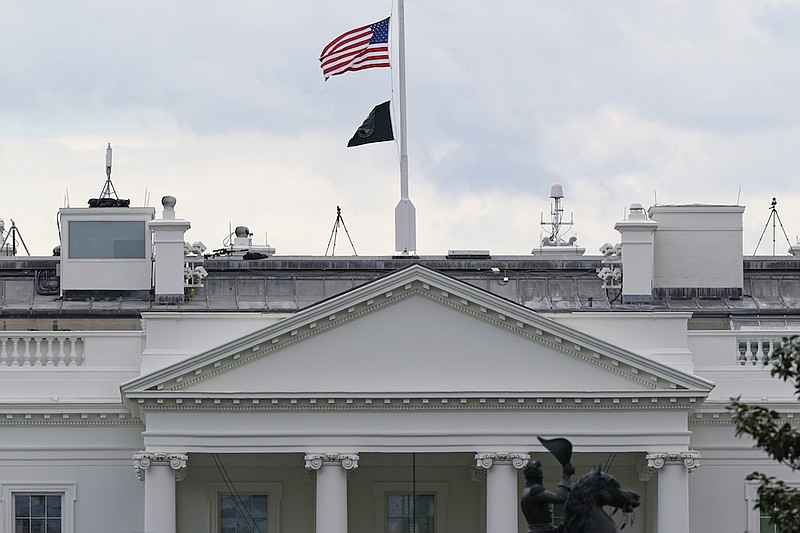The White House lowered its flag in mourning for victims at the FedEx facility. It's hardly the first time this year that this flag has been flown at half-staff. There have been at least 147 mass shootings, defined as killing four or more people not including the shooter, since January. There have been 45 in just the past month. That comes to more than one mass shooting a day. It's an increase of almost 73% over the same time period last year and they're deadlier with almost twice as many fatalities. Maybe the White House should leave the flag in mourning mode permanently.
It's unlikely that we've seen the last of these massacres. Gun violence researchers describe the situation as a contagion effect with each incident spawning copy cats. This deadly disease is particularly contagious to revenge-seeking males who make up 98% of these shooters.
Some shooters are white supremacists, leading the Justice Department to consider federal hate crime and federal firearms charges. That would be the case in the recent mass shootings of Asians in Atlanta. Kami Chavis, a hate crimes expert and director of the Criminal Justice Program at Wake Forest University School of Law, says, "We're seeing the confluence of violence, easy access to guns and political rhetoric that does not condemn and often supports violence against minorities."
Some shooters are psychologically warped. An FBI study of active shooters between 2000 and 2013 found that the shooters were typically experiencing multiple stressors in the years before they attacked, often related to mental health, finances and work. If those stressors propelled these folks to act pre-COVID, imagine what we're facing now. A recent study shows that adults are now three times more likely to suffer from depression and anxiety.
The history of the FedEx shooter certainly underscores the mental element of these massacres. His mother had warned authorities that he could be dangerous, and authorities used Indiana's Red Flag law to confiscate his gun. Red Flag laws allow family members or law enforcement to file for an Emergency Protection Order against someone they feel poses an imminent risk if allowed to purchase firearms. Unfortunately, the Indiana Red Flag law only applied to a six-month period. After it expired, the FedEx shooter was legally allowed to purchase a long gun, described by police as an assault rifle.
Many who oppose gun regulation maintain that it's the issue of mental health that should be addressed, not gun control. They resent any interference with the gun rights of upstanding American citizens. The passion for firearms means that only seven states and the District of Columbia currently ban these weapons. Yet research demonstrates that banning assault weapons in particular can help prevent gun violence. If Congress can approve $5 billion for mental health in the recent COVID relief bill, why can't it approve an assault weapon ban?
Many states are expanding the ability to purchase firearms, and Tennessee has passed new permitless carry legislation. Fortunately, that law doesn't apply to felons, domestic violence offenders and people who've been committed by the court to a mental institution. Unfortunately, it doesn't apply if there's no court-ordered stay in a mental hospital. And Tennessee's legislature has refused as recently as March of this year to enact proposed Red Flag laws.
While Gov. Lee calls it "public safety," Tennessee law-enforcement agencies, business leaders, medical professionals, and clergy oppose permitless carry. Maybe because without Red Flag laws, public safety resembles dumb luck. So call your state representatives and insist that they pass these laws, and for years, not just a six-month period. Enough already!
Contact Deborah Levine, an author, trainer/coach and editor of the American Diversity Report, at deborah@ diversityreport.com.

